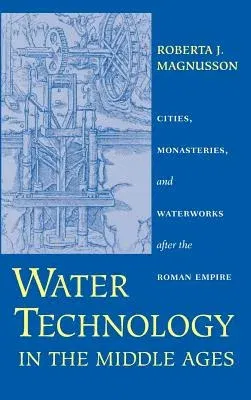Roberta J Magnusson
(Author)Water Technology in the Middle Ages: Cities, Monasteries, and Waterworks After the Roman EmpireHardcover, 4 January 2002

Qty
1
Turbo
Ships in 2 - 3 days
In Stock
Free Delivery
Cash on Delivery
15 Days
Free Returns
Secure Checkout

Part of Series
Johns Hopkins Studies in the History of Technology
Print Length
256 pages
Language
English
Publisher
Johns Hopkins University Press
Date Published
4 Jan 2002
ISBN-10
080186626X
ISBN-13
9780801866265
Description
Product Details
Author:
Book Format:
Hardcover
Country of Origin:
US
Date Published:
4 January 2002
Dimensions:
23.57 x
16.05 x
2.03 cm
ISBN-10:
080186626X
ISBN-13:
9780801866265
Language:
English
Location:
Baltimore
Pages:
256
Publisher:
Weight:
485.34 gm